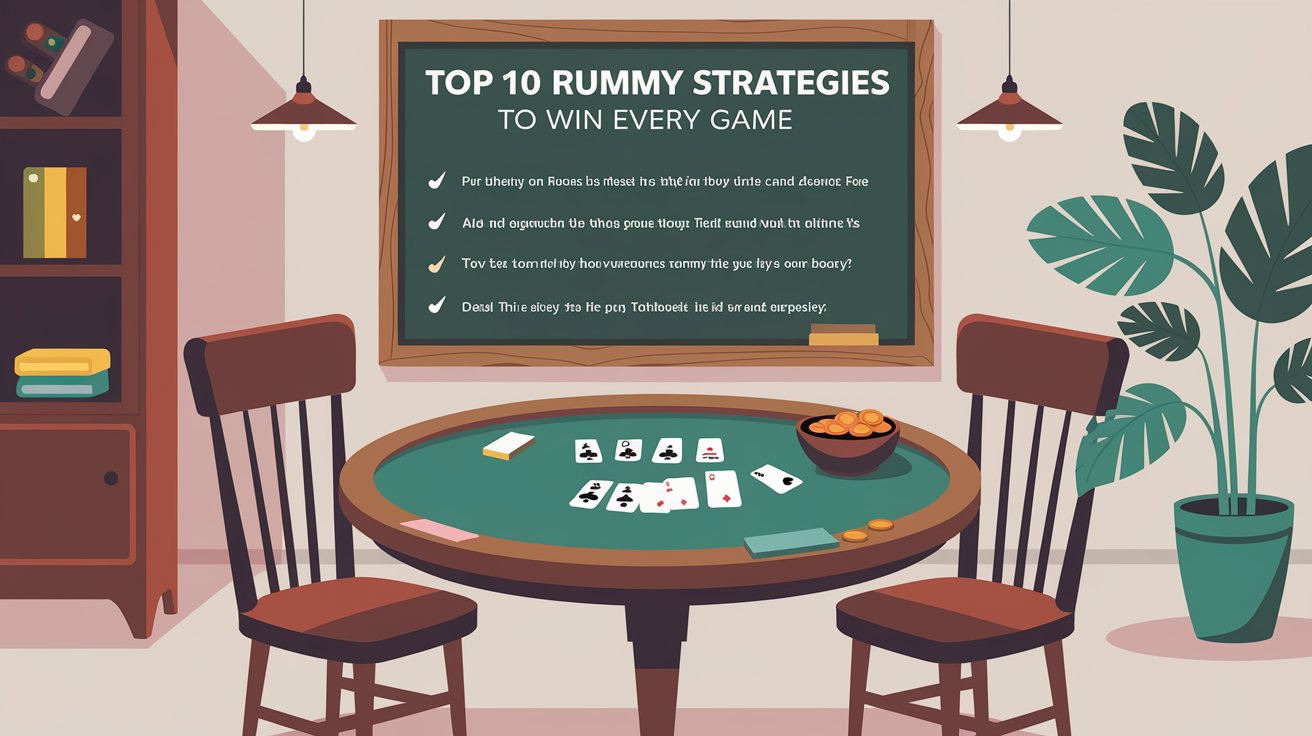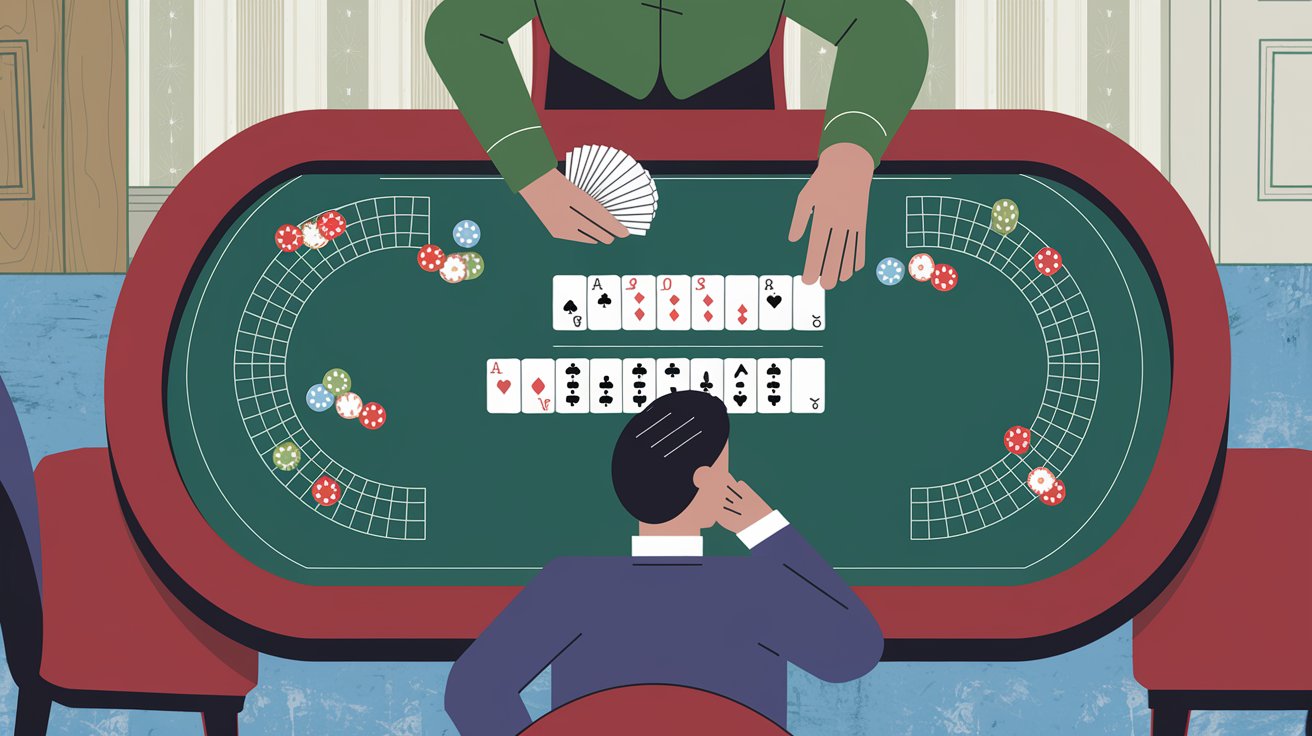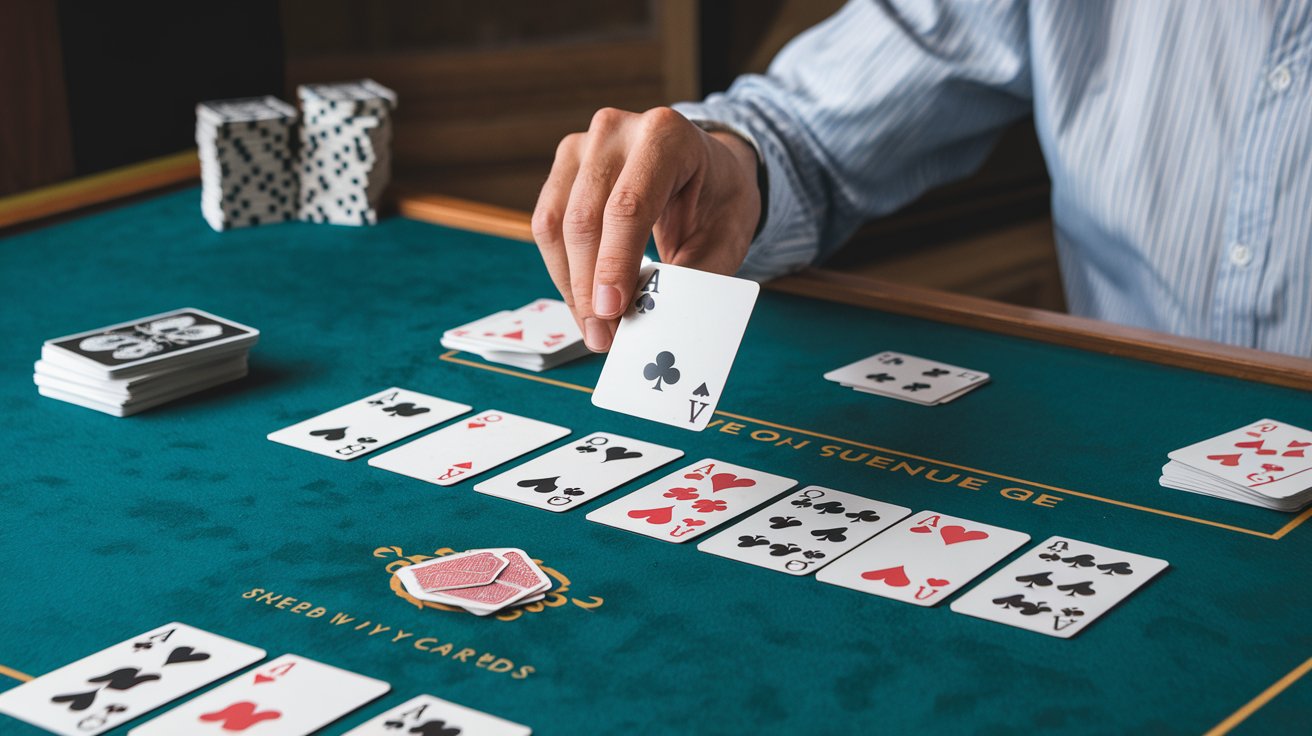Rummy is one of the most popular card games in the world, played by millions for centuries. Whether you’re playing Gin Rummy, Indian Rummy, or any other variant, the essence of the game remains the same: to form valid melds (sets or runs) before your opponents and get rid of all your cards. While luck plays a role, Rummy is primarily a strategic game where skill and clever tactics will determine the winner.
In this blog, we’ll share the Top 10 Rummy strategies to help you dominate every game. These strategies are designed for players who want to elevate their gameplay and maximize their chances of winning, no matter the variant. By mastering these strategies, you’ll improve your Rummy skills and become a formidable opponent.
1. Control Your Discards

One of the most important strategies in Rummy is controlling your discards. As you discard cards, you’re providing valuable information to your opponents about what cards you need and don’t need. You must make sure to discard wisely to avoid giving away your hand’s strategy.
How to Control Your Discards:
- Avoid discarding high-value cards like Kings, Queens, and Aces unless you are sure they won’t help your hand.
- Don’t discard cards that complete a run or set for your opponent. If your opponent is looking for a 7♠, for instance, don’t discard a 7♦ or 7♣. This could allow them to complete a run and win the game.
- Observe your opponent’s discards to understand their strategy. If they are discarding a lot of cards of the same suit or rank, it’s likely they are working on a set or run.
Pro Tip: Hold onto cards that won’t likely be needed by your opponents. If a certain card hasn’t been picked up from the discard pile by the time it circles back to you, it’s safe to discard.
2. Form Runs Before Sets
In many Rummy variants, it’s easier to form runs (sequences of three or more consecutive cards of the same suit) than sets (groups of three or more cards of the same rank). This is because there are more combinations possible with runs than with sets.
How to Form Runs First:
- Look for consecutive cards of the same suit early in the game, especially if you have a 5♠, 6♠, and 7♠. You only need a 4♠ or 8♠ to complete the run.
- Pick up cards that can easily contribute to multiple potential runs (e.g., cards that are in-between two sequences).
- Avoid breaking runs if you have already created partial sequences. It’s better to hold onto cards that complete the runs before discarding them.
Pro Tip: If you have a choice between completing a set or a run, always prioritize completing the run, as it offers more flexibility and options.
3. Don’t Be Afraid to Use Jokers
Many Rummy variants include Jokers or wild cards, which can be used as substitutes for any other card. These cards can be game-changers, so knowing how and when to use them effectively is a key strategy to winning.
How to Use Jokers Effectively:
- Use Jokers to complete difficult sets or runs that would otherwise be hard to complete.
- Don’t over-rely on Jokers. While they are helpful, relying too heavily on them can reduce your ability to create new melds without them.
- Use Jokers for high-point cards that you don’t have a natural match for. For example, using a Joker to replace a card like King can help you complete a set of Kings even if you don’t have all the Kings in the deck.
Pro Tip: Save your Joker for high-stakes moments, like completing a near-complete run or set. Don’t use it unnecessarily.
4. Observe Your Opponents’ Moves

The key to mastering Rummy is understanding your opponents’ strategies. By observing their moves, you can make better decisions on what to discard and when to pick up cards.
How to Observe Your Opponents:
- Watch what cards your opponents are discarding and which cards they are picking up. If they pick up a 7♠, for example, they are likely trying to complete a run in spades. Avoid discarding cards that might complete their sequence.
- Pay attention to their playing patterns. Are they drawing cards primarily from the stockpile, or do they focus more on the discard pile? If they’re ignoring the discard pile, they likely have a more balanced hand or are looking for specific cards.
- Study their hesitation. A player who hesitates before discarding or drawing might be holding a card they can’t use and could be planning their next move carefully.
Pro Tip: If you notice that an opponent is consistently picking up cards that are beneficial to their hand, consider disrupting their strategy by discarding cards that will make it harder for them to complete their runs or sets.
5. Plan Your Hand Early
Rummy is all about strategy, and the earlier you begin planning your hand, the better. Instead of waiting for the last minute to form a run or set, start planning your moves as soon as you get your cards.
How to Plan Your Hand:
- Assess your cards early on. Are there cards that can form a run or a set immediately? If so, start focusing on completing them.
- Keep track of the cards you need. If you already have a 4♠, 5♠, and 6♠, aim for 3♠ or 7♠ to complete your run. If you see these cards are being discarded frequently, make a note of it.
- Prioritize flexibility. Hold onto cards that are versatile and can form multiple types of melds. This will give you more options as the game progresses.
Pro Tip: Plan your moves while also considering what cards your opponents may need. This helps you decide which cards to keep or discard to prevent them from completing their hand.
6. Minimize the Points Left in Your Hand
If you’re unable to form complete sets and runs before another player goes out, you’ll be left with points in your hand. To reduce the points, focus on discarding high-value cards and holding onto low-point cards.
How to Minimize Points:
- Keep only low-point cards like 2s, 3s, and 4s if you’re close to completing your hand. These cards are safe and carry little risk if you’re caught holding them.
- Discard face cards (Jack, Queen, King) as soon as possible, especially if you can’t form a set or run with them.
- Avoid holding multiple high cards, such as several face cards, because they add up quickly in points if you fail to go out.
Pro Tip: Even if you’re not close to finishing your hand, keep an eye on the remaining points in your hand. Discard cards that are high in value to minimize penalties in case you’re caught at the end.
7. Use the Discard Pile Strategically

The discard pile is an essential part of the game. Players can pick up cards from the discard pile and use them to form sets or runs. Knowing when and how to use the discard pile is a critical Rummy strategy.
How to Use the Discard Pile:
- Pick up cards from the discard pile only when they are essential to completing your meld. Don’t pick up cards just because they’re available.
- Avoid discarding cards that could be useful to your opponent, especially if you know they’re aiming for a specific run or set.
- Use the discard pile to control the game. By discarding cards that you think your opponents need, you can disrupt their hand and force them to draw from the stockpile.
Pro Tip: Picking up from the discard pile gives away your strategy. Use it when necessary but try to keep your game plan a mystery for as long as possible.
8. Practice Patience and Timing
Patience is a critical virtue in Rummy. Rushing to form a meld or going out prematurely can often lead to mistakes or missed opportunities.
How to Practice Patience:
- Don’t rush to finish. Wait for the right moment to go out. Sometimes, it’s better to hold onto your cards for one more round to get rid of high-point cards.
- Play defensively if needed. If you sense that your opponent is about to win, hold back and draw from the stockpile. This will increase the chances of either forcing them into making a mistake or allowing you to form a last-minute meld.
Pro Tip: Timing your exit from the game is crucial. Wait until you have completed your hand or are close to it before making any sudden moves.
9. Adapt Your Strategy as the Game Progresses
One of the most important strategies in Rummy is adapting your approach based on how the game is unfolding.
How to Adapt:
- Change tactics depending on the game phase. Early in the game, you might be focused on building your hand. Mid-game, you should focus on controlling discards and watching your opponents. In the late game, start planning your final moves to go out.
- React to your opponents’ actions. If your opponent is picking up a lot of cards from the discard pile, it may signal that they have a hand ready to complete. Consider adjusting your discard strategy to block their progress.
Pro Tip: Always be flexible and don’t get stuck in a single strategy. The best players know when to pivot and change their approach based on the game’s flow.
10. Practice, Practice, Practice
Finally, the most important Rummy strategy is simply to practice. The more you play, the better you’ll become at recognizing patterns, adapting to new challenges, and improving your decision-making skills.
How to Practice:
- Play with different opponents to expose yourself to various strategies.
- Try different Rummy variants to understand the unique aspects of each and sharpen your general Rummy skills.
- Reflect on your games to identify areas of improvement, whether it’s discarding more efficiently or recognizing when to go out.
Pro Tip: Consider playing Rummy online or with friends to increase your exposure to different tactics and learn from your mistakes.
Conclusion
Mastering Rummy requires more than just luck. By implementing these Top 10 Rummy strategies, you can increase your chances of winning every game. Whether you focus on controlling your discards, making the most of wild cards, or observing your opponents, every move counts. By practicing these strategies consistently, you’ll not only improve your skills but also gain a deeper understanding of the game, allowing you to stay one step ahead of your opponents. So, the next time you sit down to play, bring these strategies into action and watch your game improve dramatically!

Zareb Saleh is a journalist at Gulf Today and a ghostwriter for Gameoholic, specializing in gaming, technology, and digital culture. With a keen eye for industry trends, he delivers insightful stories that engage and inform readers.




